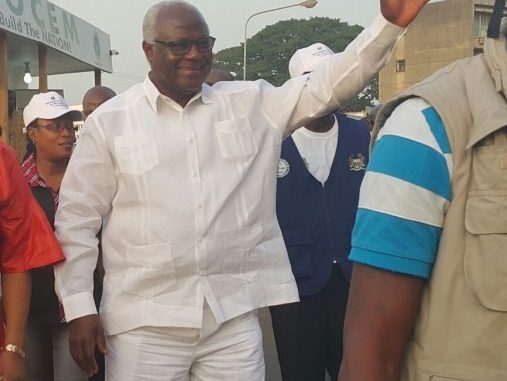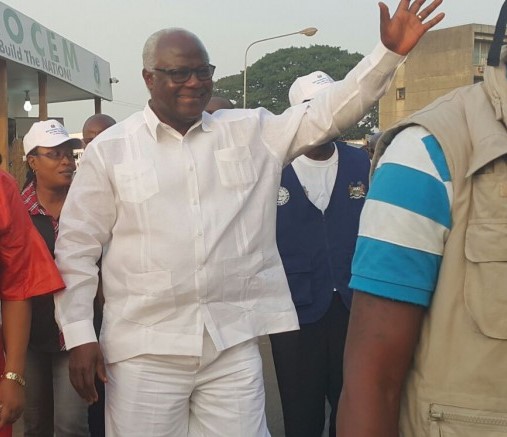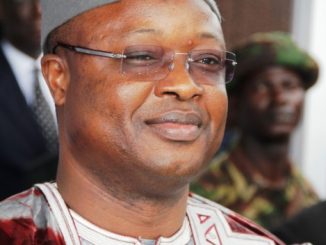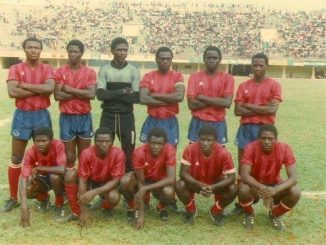
London, GN —- The government of Sierra Leone has told investors that the country is ready to go back to economic growth following the devastating outbreak of Ebola that saw GDP of 20 per cent drop drastically between 2014 and 2015.
The government used the UK-Sierra Leone Trade and Investment Forum in London on February 25 to drive home its Post-Ebola Recovery Plan aimed at restoring and strengthening private sector growth and encouraging new inward investment.
At the Forum, organised by Developing Markets Associates (DMA), the government presented its investment priorities for key sectors – including extractives, agriculture and infrastructure – to senior figures from the international business and investment community.
Sierra Leonean Foreign Affairs and International Cooperation Minister Samura Kamara read an address from President Ernest Koroma in which he said: “Ebola closed the door on us for over a year, but we have defeated the evil virus and today we are partnering with [DMA] to showcase the great investment opportunities in Sierra Leone.”
The president stressed his government’s strong focus on partnering with the private sector.
“It is this belief in the centrality of the private sector in our economic transformation that brought billions of dollars’ worth of investment to Sierra Leone before Ebola struck,” President Koroma said.
According to the UN Conference on Trade and Development (UNCTAD), net foreign direct investment (FDI0 into Sierra Leone totalled $2 billion between 2010 and 2014, up from $402 million in the previous five years.
President Koroma attributed this steep increase in FDI to “political stability and sound macroeconomic fundamentals”.
He added: “These opportunities still exist, and this private sector friendliness still exists.
“We have placed the private sector at the very heart of our Post-Ebola Recovery Plan, which interfaces with our normal development path: the Agenda for Prosperity.”
Coming from the business sector, President Koroma said: “I do understand and fully appreciate the workings and challenges of the private sector more than any other president our country has had; and I have always lent the authority of my office to create the environment for businesses to thrive.”
This, he believes, has led to Sierra Leone scoring higher than most countries in Africa on the World Bank’s Doing Business Index, which looks at the ease of starting a business as well as protection for investors.
President Koroma told investors: “Sierra Leone offers a gateway for private businesses to either invest alone or in public-private partnerships in priority areas such as electrification, ports, airports and toll road concessions, highways, subways and railways, mass social housing, water treatment plants and irrigation as well as information and communication technologies.”
James Duddridge, Parliamentary Under-Secretary of State at the UK’s Foreign and Commonwealth Office (FCO) said he hoped that the Forum would be a pushing point that would help Sierra Leone move its economy forward.
“It’s not about aid. It’s about business and there are huge areas for private sector involvement,” Mr Duddridge said.
The FCO was instrumental in getting firms in the City of London, the UK’s financial centre, to support Sierra Leone during the Ebola crisis.
Herbert Smith Freehills lawyers, together with Standard Chartered Bank and Prudential plc came together as part of the City Ebola Taskforce, which was formed following a private sector briefing by the FCO on its actions to support the government of Sierra Leone during the crisis.
The Taskforce produced an upbeat guide on a private sector perspective on the investment landscape in Sierra Leone, which was launched last July at the UN International Ebola Recovery Conference in New York.
In a joint foreword to the guide, members of the Taskforce noted: “As global businesses with a long-standing commitment to Africa in general – and Sierra Leone in particular – we are passionate about helping Sierra Leone recover and emerge stronger from the Ebola crisis.
“While challenges remain, the country offers tremendous potential, with strong underlying growth and investment opportunities.
“This Investor Guide informs potential investors about these opportunities, the wider context and the resources available to them.”
Herbert Smith Freehills had established relations with Sierra Leone in 2010 when it began providing the government with pro bono legal advice in its dealing with multinationals.
Fair Deal Sierra Leone, which has so far provided over £2 million worth of free legal advice to the government, is the first large-scale pro bono facility offered by a law firm in support of a country’s development efforts.
Harnessing Herbert Smith Freehills’ firm-wide expertise, Fair Deal delivers free, expert legal support to the Sierra Leonean government to help protect its interests when entering into complex agreements with international investors.
Support includes policy and legislative advice, contract review, deal negotiation support and assistance on disputes.
Recent work includes pro bono advice on the commercial implications of the Ebola outbreak.
Incorporated in 2007, Forum organiser DMA was established to “help money flow into the world’s emerging economies” through a number of vehicles from investment summits for sovereign governments to reducing the costs of international remittances and deepening financial inclusion in emerging economies.
© Ghana News Agency
GNA




